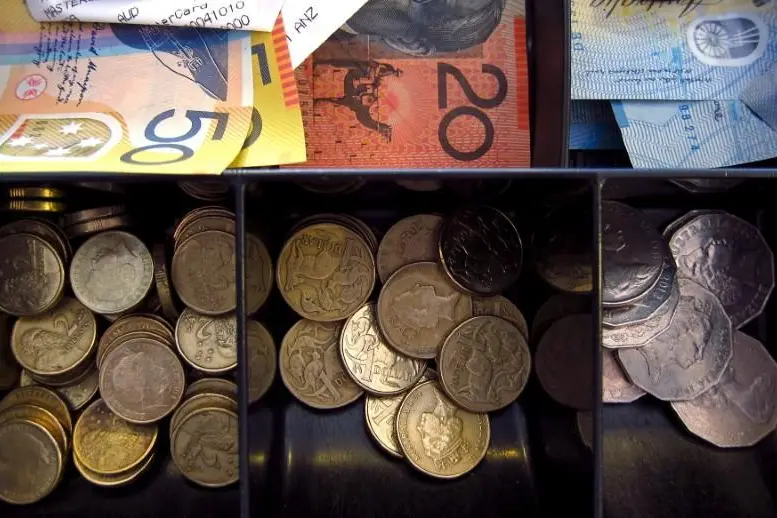PHOTO
The Australian and New Zealand dollars took a step back on Wednesday after a surprisingly low reading on monthly inflation seemed to lessen the risk of another hike in interest rates and boosted bonds.
The Aussie edged down 0.2% to $0.6466, paring some of the 0.8% gain made overnight when a downside surprise in U.S. jobs data hit the U.S. dollar. Resistance lies at a recent top of $0.6488, with support around $0.6400.
The kiwi dollar eased a shade to $0.5954, after rallying almost 1.1% overnight. It faces stiff chart resistance at $0.5984.
Monthly data on Australian consumer prices showed a slim rise of 0.3% in July which saw the annual pace slow to a 17-month low of 4.9%. That was down from 5.4% in June and under forecasts of 5.2%.
Measures of core inflation were higher but also decelerating, leading the market to add to bets that the Reserve Bank of Australia (RBA) was done raising rates. Futures had already almost priced out any chance of a hike in the 4.1% cash rate at the RBA's September meeting next week, and now implies only a 36% probability of a rise by year end.
Rates are still seen holding steady for an extended period, with no chance of a cut priced until September next year.
"The sharp fall in inflation confirms that the RBA is done tightening and raises the chances that the Bank will start to ease policy earlier than most anticipate," said By Marcel Thieliant, head of Asia-Pacific economics at Capital Economics.
"The risks are tilted towards rate cuts starting earlier than our current forecast of Q2 2024."
Yields on three-year bonds eased further to 3.778%, having already dropped 9 basis points overnight as Treasuries rallied.
Ten-year yields were near their lowest in three weeks at 4.06%, putting them 6 basis points under U.S. yields. (Reporting by Wayne Cole; Editing by Simon Cameron-Moore)





















